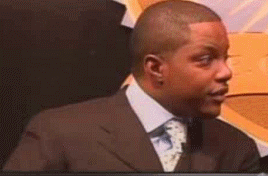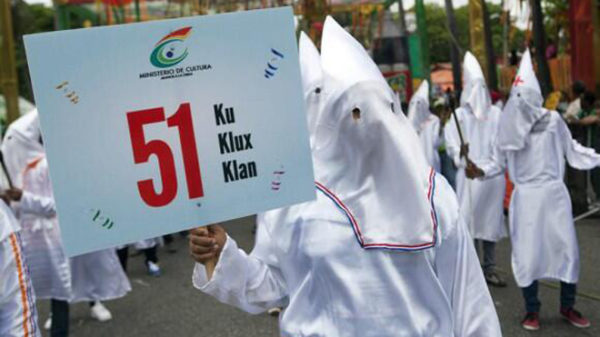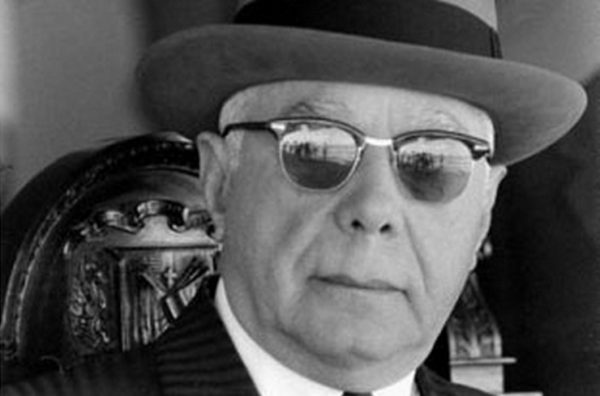We was an espn mainstay and now hes leftovers...105.1 is a very...very...very distant second in Detroit and nobody respects that blowhard jackass. He is a peon and before he was on the rise.If that's not rhetorical he's not doing too bad. He's got a decent broadcasting job in your neck of the woods, which I'm sure you're aware. Rob Parker shouldn't have been fired when you consider the dumb shyt other people have said/done on ESPN. Wonder why he got bodied tho
You are using an out of date browser. It may not display this or other websites correctly.
You should upgrade or use an alternative browser.
You should upgrade or use an alternative browser.
Colin Cowherd unloads guns on Dominicans
- Thread starter LexDiamonds
- Start date
More options
Who Replied?Haiti was the richest colony in the new world until the slaves revolted and set up their own government. The West has been shytting on it pretty much ever since.
im not 100% convinced that has anything to do with haiti being a black country rather then a poor one
im pretty much sure if mexico was their boardering neighbor they would have the same deportation policy as they do to the haitians
he knows colin is on his way out so heto bomani for talking about this and basically calling colin dumb

even revealed Colin's bytchmove about not letting him get on his(the herd) show to debate him over some dumb sht dude had said

GhostoftheMan
Superstar
he knows colin is on his way out so he
even revealed Colin's bytchmove about not letting him get on his(the herd) show to debate him over some dumb sht dude had said
those subtle shots had me like

YoungMoneyCashMoneyBoy
Superstar

"Dominicans Dressed as Ku Klux Klan
In 2014, the Dominican Carnival featured 180 processions, representing the 31 provinces of the Dominican Republic. The colorful, creative costumes and energetic drum-driven music entertained the crowds until the presence of a small group dressed as the Ku Klux Klan came into view and shocked most of the spectators. According to 7días, this wasn’t the first time participants chose to dress as the KKK during carnival.
A statement issued by Dominican Republic’s Ministry of Culture offered this explanation:“Every group is free to choose their themes, whether using elements of the Dominican identity or universal culture in their costumes.” The statement continued: The Dominican Republic is a “free country” where people are at liberty “to express their creativity.”
"

Dominicans of Haitian Descent Stripped of Citizenship
A September 2013 court decision ruled that Dominicans born after 1929 to parents who are not of Dominican ancestry would have their citizenship revoked, according to a report published by Atlanta Black Star.
The decision affects roughly 250,000 Dominicans of Haitian descent. Some citizens affected by the ruling have no connection to Haiti at all. The citizens in jeopardy of losing citizenship rights will have severe restrictions on education, employment, legal marriage and birth registration. Leaving the country also presents challenges because they will not be able to obtain or renew passports, according to the National Institute for Latino Policy.
On February 19, 2014, the Dominican Republic delegation to the Organization of American States released a statement ensuring that the residents of Haitian descent will their rights as citizens. Mayerlyn Cordero Diaz, Dominican Representative of the OAS said: “The government of the Dominican Republic reaffirms that no person holding Dominican nationality will be stripped of it.”
However, an estimated 24,000 Dominican-born Haitians presently have confirmed pending deportation cases because they are reportedly missing documentation.

The Haitian Massacre of 1937
In 1937, Dominican dictator Rafael Leonidas Trujillo Molina, who was of mixed race, commanded his army to kill all Haitians living in the northwestern Dominican Republic that borders Haiti.
According to “Foundations of Despotism: Peasants, the Trujillo Regime, and Modernity in Dominican History” published by Stanford University Press, from Oct. 2 to Oct 8, hundreds of Dominican soldiers and local militia groups confined and slaughtered an estimated 15,000 Haitian people living in the area. Most of the victims were small farmers born in the Dominican Republic into families settled in the area for several generations. According to the Dominican Republic’s own constitution, most of the victims would have been considered citizens.
In 2007, the Catholic Church requested a national apology from the Dominican Republic to Haiti. Cardinal Nicolas de Jesus Lopez Rodriguez, archbishop of Santo Domingo, refused to comply because he said the Haitian massacre occurred 70 years ago, and Trujillo was killed in 1961. Rodriguez said: “In this case it’s Trujillo who should be asked to render account, who was the criminal. It doesn’t seem to me that the Dominican people have any guilt in that, honestly.”
Thousands march in Haiti over Dominican racism
Haitians from all walks of life took to the streets of the capital to demand justice for the lynching death of a Haitian man in the neighboring country of the Dominican Republic.
Two weeks after a Haitian man was lynched in the Dominican Republic, thousands marched through the streets of Port-au-Prince on Wednesday, demanding justice and denouncing rising anti-Haitian sentiment in the neighboring Spanish-speaking country.
Thousands march in Haiti over Dominican racism
Be angry that a racist cac shat on self-hating country that hates blacks, brehs
USSInsiders
Banned
We was an espn mainstay and now hes leftovers...105.1 is a very...very...very distant second in Detroit and nobody respects that blowhard jackass. He is a peon and before he was on the rise.
 I honestly don't even remember his contributions on ESPN at all
I honestly don't even remember his contributions on ESPN at allTony D'Amato
It's all about the inches
Herd goin out dumpin. He know he wont ever be trending on sirius.
jwonder
Superstar
He going hard on the Diablo Locos? 

NYC Rebel
...on the otherside of the pond
Niqqas love thinking they've educated the board.
"Dominicans Dressed as Ku Klux Klan
In 2014, the Dominican Carnival featured 180 processions, representing the 31 provinces of the Dominican Republic. The colorful, creative costumes and energetic drum-driven music entertained the crowds until the presence of a small group dressed as the Ku Klux Klan came into view and shocked most of the spectators. According to 7días, this wasn’t the first time participants chose to dress as the KKK during carnival.
A statement issued by Dominican Republic’s Ministry of Culture offered this explanation:“Every group is free to choose their themes, whether using elements of the Dominican identity or universal culture in their costumes.” The statement continued: The Dominican Republic is a “free country” where people are at liberty “to express their creativity.”
"
Dominicans of Haitian Descent Stripped of Citizenship
A September 2013 court decision ruled that Dominicans born after 1929 to parents who are not of Dominican ancestry would have their citizenship revoked, according to a report published by Atlanta Black Star.
The decision affects roughly 250,000 Dominicans of Haitian descent. Some citizens affected by the ruling have no connection to Haiti at all. The citizens in jeopardy of losing citizenship rights will have severe restrictions on education, employment, legal marriage and birth registration. Leaving the country also presents challenges because they will not be able to obtain or renew passports, according to the National Institute for Latino Policy.
On February 19, 2014, the Dominican Republic delegation to the Organization of American States released a statement ensuring that the residents of Haitian descent will their rights as citizens. Mayerlyn Cordero Diaz, Dominican Representative of the OAS said: “The government of the Dominican Republic reaffirms that no person holding Dominican nationality will be stripped of it.”
However, an estimated 24,000 Dominican-born Haitians presently have confirmed pending deportation cases because they are reportedly missing documentation.

The Haitian Massacre of 1937
In 1937, Dominican dictator Rafael Leonidas Trujillo Molina, who was of mixed race, commanded his army to kill all Haitians living in the northwestern Dominican Republic that borders Haiti.
According to “Foundations of Despotism: Peasants, the Trujillo Regime, and Modernity in Dominican History” published by Stanford University Press, from Oct. 2 to Oct 8, hundreds of Dominican soldiers and local militia groups confined and slaughtered an estimated 15,000 Haitian people living in the area. Most of the victims were small farmers born in the Dominican Republic into families settled in the area for several generations. According to the Dominican Republic’s own constitution, most of the victims would have been considered citizens.
In 2007, the Catholic Church requested a national apology from the Dominican Republic to Haiti. Cardinal Nicolas de Jesus Lopez Rodriguez, archbishop of Santo Domingo, refused to comply because he said the Haitian massacre occurred 70 years ago, and Trujillo was killed in 1961. Rodriguez said: “In this case it’s Trujillo who should be asked to render account, who was the criminal. It doesn’t seem to me that the Dominican people have any guilt in that, honestly.”
Thousands march in Haiti over Dominican racism
Haitians from all walks of life took to the streets of the capital to demand justice for the lynching death of a Haitian man in the neighboring country of the Dominican Republic.
Two weeks after a Haitian man was lynched in the Dominican Republic, thousands marched through the streets of Port-au-Prince on Wednesday, demanding justice and denouncing rising anti-Haitian sentiment in the neighboring Spanish-speaking country.
Thousands march in Haiti over Dominican racism
Be angry that a racist cac shat on self-hating country that hates blacks, brehs

Who doesn't know this about the DR? So that means we give a pass to a bigot?
Oh....I get it. We are SOOOOO pre-occupied by Colin that there's no room in our peon brains UNLIKE YOU to know about what you spoke about concerning the DR.

We are not worthy Mr. Great Thinker!!

Dr is racist to Haitians, even if your dark skin and visit these little poor scrubs in the street think they are better than you 

People still listen to cacheard
Lots of dumb asses in here thinking they know about Haitian/Dominican history.
They always wanna point out this deportation of Haitians without thinking to themselves. Can't the Haitian government provide to these people what they need so they won't have to migrate to other countries.
Can't the Haitian government provide to these people what they need so they won't have to migrate to other countries.
The DR government has given Haitian immigrants enough time to get their paperwork together and even stretching the deadline before these deportations start. Half of the people didn't just bother starting the process or the Haitian government just didn't give a fukk about providing it's people with the necessary documentation to get citizenship elsewhere.
The DR is not like the United States and does not have the money and resources to provide for the Many immigrants from Haiti and even then they have provided the most support. DR the first ones one scene after the earth quake and the last to leave. United States let Haitians come in for a bit and kicked them right back out and this does not get talked about. The Haitian government has been provided with milions of dollars and support for from other countries to rebuild and you still have areas in Haiti that still look like they were decimated by this earthquake yesterday(but this does not get talked about). I ain't gonna let you dudes that don't know shyt about these two countries history talk shyt with your white media driven narratives.

Lots of dumb asses in here thinking they know about Haitian/Dominican history.
They always wanna point out this deportation of Haitians without thinking to themselves.
 Can't the Haitian government provide to these people what they need so they won't have to migrate to other countries.
Can't the Haitian government provide to these people what they need so they won't have to migrate to other countries.The DR government has given Haitian immigrants enough time to get their paperwork together and even stretching the deadline before these deportations start. Half of the people didn't just bother starting the process or the Haitian government just didn't give a fukk about providing it's people with the necessary documentation to get citizenship elsewhere.
The DR is not like the United States and does not have the money and resources to provide for the Many immigrants from Haiti and even then they have provided the most support. DR the first ones one scene after the earth quake and the last to leave. United States let Haitians come in for a bit and kicked them right back out and this does not get talked about. The Haitian government has been provided with milions of dollars and support for from other countries to rebuild and you still have areas in Haiti that still look like they were decimated by this earthquake yesterday(but this does not get talked about). I ain't gonna let you dudes that don't know shyt about these two countries history talk shyt with your white media driven narratives.

NYC Rebel
...on the otherside of the pond
People still listen to cacheard
Lots of dumb asses in here thinking they know about Haitian/Dominican history.
They always wanna point out this deportation of Haitians without thinking to themselves.Can't the Haitian government provide to these people what they need so they won't have to migrate to other countries.
The DR government has given Haitian immigrants enough time to get their paperwork together and even stretching the deadline before these deportations start. Half of the people didn't just bother starting the process or the Haitian government just didn't give a fukk about providing it's people with the necessary documentation to get citizenship elsewhere.
The DR is not like the United States and does not have the money and resources to provide for the Many immigrants from Haiti and even then they have provided the most support. DR the first ones one scene after the earth quake and the last to leave. United States let Haitians come in for a bit and kicked them right back out and this does not get talked about. The Haitian government has been provided with milions of dollars and support for from other countries to rebuild and you still have areas in Haiti that still look like they were decimated by this earthquake yesterday(but this does not get talked about). I ain't gonna let you dudes that don't know shyt about these two countries history talk shyt with your white media driven narratives.
This is pure trash on levels I can't believe.
If a child of Haitian decent is born in the DR, why are they at fault, vilified and cast out of the country for nothing but being born?
Second, you just listened to Cowherd NO DIFFERENT THAN ANYONE IN HERE. Why do you think you performed something special?
Yeah, not gonna cape for them fukk boislet the dominicans handle this themselves

I don't have a single Dominican friend that doesn't think DR is on BS with that deportation shyt. Miss me with this. I didn't even read past your sentence on that.People still listen to cacheard
Lots of dumb asses in here thinking they know about Haitian/Dominican history.
They always wanna point out this deportation of Haitians without thinking to themselves.Can't the Haitian government provide to these people what they need so they won't have to migrate to other countries.
The DR government has given Haitian immigrants enough time to get their paperwork together and even stretching the deadline before these deportations start. Half of the people didn't just bother starting the process or the Haitian government just didn't give a fukk about providing it's people with the necessary documentation to get citizenship elsewhere.
The DR is not like the United States and does not have the money and resources to provide for the Many immigrants from Haiti and even then they have provided the most support. DR the first ones one scene after the earth quake and the last to leave. United States let Haitians come in for a bit and kicked them right back out and this does not get talked about. The Haitian government has been provided with milions of dollars and support for from other countries to rebuild and you still have areas in Haiti that still look like they were decimated by this earthquake yesterday(but this does not get talked about). I ain't gonna let you dudes that don't know shyt about these two countries history talk shyt with your white media driven narratives.

